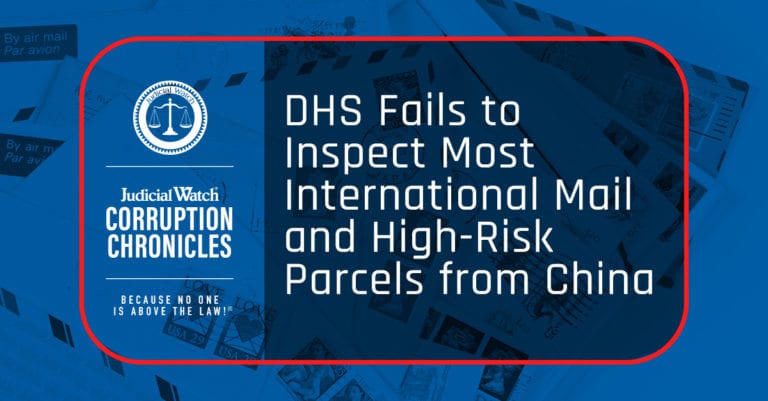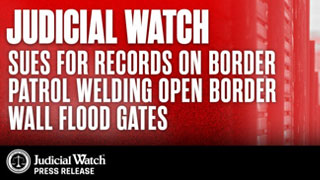

DHS Fails to Inspect Most International Mail and High-Risk Parcels from China


The Homeland Security agency charged with interdicting illegal drugs and other contraband in U.S.-bound mail only inspects a small percentage of parcels—including high-risk packages arriving from China—at the facility that receives most of the nation’s international post. This opens the path for imports of opioids and other illegal items mailed from overseas through the U.S. Postal Service (USPS), according to a distressing federal audit released this month. Incredibly, this has been going on for years and in fact, the agency in charge, Customs and Border Protection (CBP), was warned in 2018 about its serious failures at the John F. Kennedy (JFK) International Mail Facility (IMF). Little has changed, the new probe reveals.
The JFK IMF is the largest of the country’s nine facilities that receive international mail, and it processes about 60% of all overseas parcels. In fiscal year 2019 JFK got 205 million pieces of mail from all over the world. That is about 560,000 items a day. It includes mail arriving from China, which federal authorities say is explicitly considered high risk for containing contraband. Chunks of the report, published by the Department of Homeland Security (DHS) Inspector General (IG), are redacted for security reasons and specific figures are not disclosed but the agency watchdog writes that “CBP inspected a small percentage of high-risk mail arriving from China” and indicates that the agency inspected an alarmingly low number of targeted Chinese parcels despite establishing that mail from that country is high risk for containing contraband. The negligence does not end there. Investigators determined that “CBP could not confirm it inspected all targeted mail from high-risk countries.”
The probe was conducted over a three-day period and considered 1.3 million parcels. While the percentage of mail that got inspected is redacted, the report makes it clear that it did not meet security standards. “CBP also did not timely inspect and process mail from high-risk countries, creating unmanageable backlogs,” the report states. “Consequently, more than (figure redacted) pieces of mail were sent out for delivery without physical inspection. Successful execution of CBP’s targeting and interdiction of prohibited items was hindered, as CBP could not fully account for the targeted mail provided by United States Postal Service (USPS).” Furthermore, physical security controls, such as locks and cameras, were not adequate to fully safeguard mail in CBP’s possession. “Deficient physical security controls can lead to unauthorized access to restricted areas, misplacement of prohibited items, or exposure to dangerous substances,” the DHS IG writes.
CBP agents are supposed to screen incoming international mail by using detection, identification, and targeting capabilities along with advanced data, information sharing, and partnerships. Officers are obligated to use a three-tiered approach for scanning and inspecting parcels at JFK that includes intelligence gathering for advanced mail targeting, X-ray machine and canine inspection, and physical inspection and testing of mail contents. Investigators found the law was seldom adhered to. “Specifically, despite legislative requirements to systematically target and prevent illegal imports, CBP physically inspected a limited number of the hundreds of thousands of incoming mail each day, largely due to difficulty inventorying and locating targeted mail as well as inadequate guidance, equipment, and resources,” according to the audit.
Among the disturbing things about these alarming revelations is that the transgressions were already exposed in detail years ago, but the agency has failed to act. In a 2018 report, the DHS IG outlines all the same issues and writes in the latest document that it conducted this audit to determine whether CBP’s airmail, physical security, and inspection processes at JFK are adequate to effectively screen, track, and safeguard incoming international mail. Sadly, the answer is a resounding no. “CBP’s mail inspection processes and physical security at John F. Kennedy (JFK) International Mail Facility (IMF) have not improved since our prior audit,” the report issued this month reads. The watchdog reminds CBP of its critical role in interdicting illegal drugs such as opioids amid an epidemic of overdoses in the U.S. “Opioids are often produced by drug traffickers overseas and illegally trafficked into the United States across its border or through mail or parcel delivery services,” the report states, adding that “airports are known to be major entry points for illegal drug imports. Given its frontline responsibility to secure the Nation from imports of illegal drugs and contraband, CBP has a major role to play in helping end the opioid crisis.”














